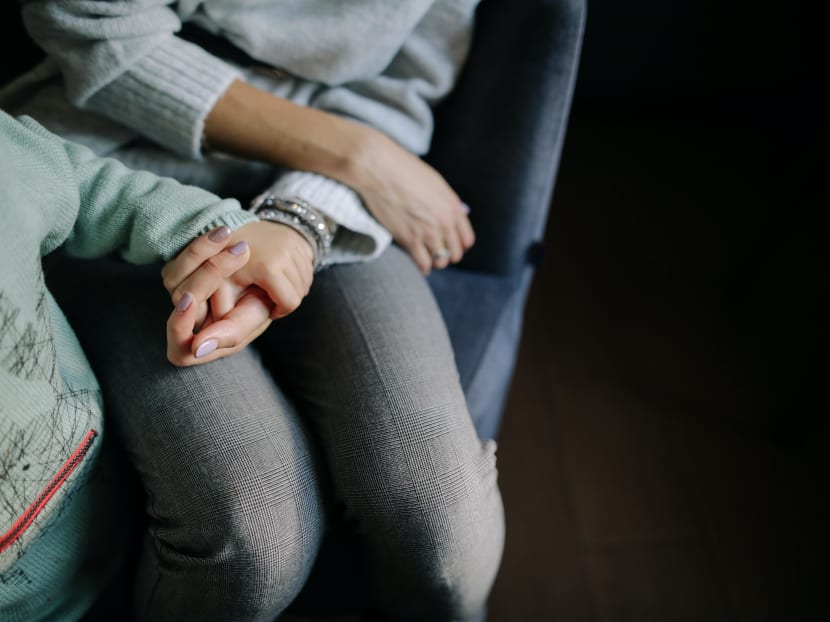KKH launches scheme to screen mental health of caregivers of children with developmental needs
SINGAPORE — Caregivers of children with developmental needs will soon be able to have themselves screened for the presence or risk of mental health problems as part of a new programme launched by KK Women’s and Children’s Hospital (KKH).

- KK Women’s and Children’s Hospital (KKH) has launched a programme for caregivers of children with developmental needs
- The first of its kind here, the programme will start next month and be trialled for two years
- It will focus on families living in the north-east — Punggol, Sengkang and Hougang
- Caregivers will be engaged via teleconsultations at the point of referral as part of the screening
SINGAPORE — Caregivers of children with developmental needs will soon be able to have themselves screened for the presence or risk of mental health problems as part of a new programme launched by KK Women’s and Children’s Hospital (KKH).
This programme, the first of its kind here, will start next month and be trialled for two years, with a focus on families living in the north-east — Punggol, Sengkang and Hougang — where there is a large population of young families and children under the age of five.
At a media conference on Wednesday (April 27), KKH said it will reach out to an estimated 500 caregivers whose children are referred to KKH’s Department of Child Development. About one-fifth of them are expected to require more intensive interventions such as counselling, psychological and psychiatry services.
It added that caregivers who are not living in this area and show signs of having mental health needs will also be given the necessary referrals.
“By supporting the caregiver, the child and the dad, we are in fact optimising Singapore’s human capital, by helping these children reach their full potential.Associate Professor Lourdes Mary Daniel from the department of child development at KK Women’s and Children’s Hospital”
KKH said the point when a child is referred to a hospital to assess the possibility of developmental needs can cause high tension in caregivers.
This can be exacerbated when caregivers face individual challenges such as anxiety, depression and limited support.
“At the hospital, the child is the focus of the assessment. Significant caregiver concerns may be identified only if they emerge during history-taking or are obvious to the care team.
“If high-risk caregivers can be identified early, they can then be provided with the support they require, as they begin their journey with their child with developmental needs,” said KKH.
Called DayOne, the programme is being run in partnership with philanthropic organisation Lien Foundation, which will be funding 75 per cent of its S$3.6 million budget.
KKH said the programme structure comprises four stages and is helmed by a 15-man multidisciplinary mental health team which includes medical social workers, psychologists and paediatricians.
Caregivers will be engaged via teleconsultations at the point of referral before they attend the clinic. Those assessed to be stressed will have their appointments fast-tracked.
They will then be screened during the first clinic visit and a four-tier support system will be used to identify their needs level.
Depending on their needs, the intervention could range from teleconsultations to home visits and undergoing periodic surveillance.
Dr Shilpee Raturi, a paediatrician in KKH’s department of child development acknowledged that different caregivers may cope with the child’s diagnosis differently. Mothers, for example, are usually more emotional and open about the challenges they face as compared to fathers.
Hence, gender-specific services will be explored in the programme, to keep pace with the shift towards caregiving and female workforce participation here.
KKH said all services given during the duration of the pilot will be complimentary.
It added that the programme may be scaled up after the trial ends by relocating the service from KKH to community partners if evaluation results are promising.
In 2021, 7,000 preschool children were assessed for developmental needs and the majority, or 72 per cent, were seen at KKH’s Department of Child Development.
Among these children, the common diagnoses were:
- Language delay (36 per cent)
- Autism (22 per cent)
- Behavioural problems (18 per cent)
Research has shown that caregivers of children with developmental needs are more likely to suffer mental health problems.
Based on KKH data in 2016, 29 per cent of mothers of children with autism spectrum disorder continued to score above the clinical cut-off for depression within six to 12 months of the diagnosis.
Parents who perceived that caring for a child with autism has negatively impacted the family also experienced more depressive symptoms.
Associate Professor Lourdes Mary Daniel, head and senior consultant at KKH’s Department of Child Development, said the most crucial relationship in the child’s life is with the caregiver.
“By supporting the caregiver, the child and the dad, we are in fact optimising Singapore’s human capital, by helping these children reach their full potential.”
Lien Foundation chief executive Lee Poh Wah said the programme tackles two big stigmas at once — developmental needs and mental health.
“It is rooted in the reality that in young families, these two conditions are often intricately linked and need to be addressed holistically. After all, there is no health without mental health.”











